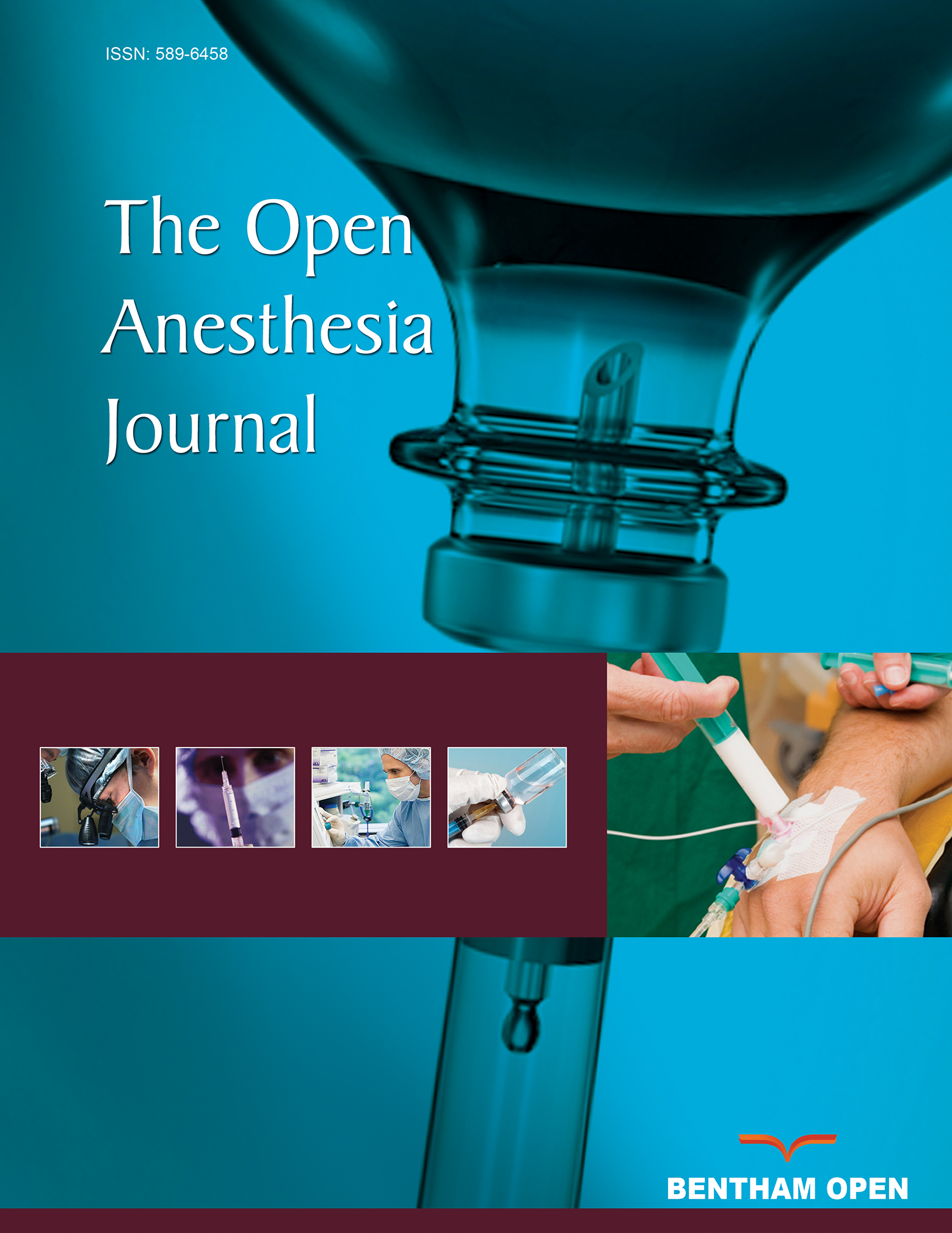All published articles of this journal are available on ScienceDirect.
The Comparing of Ultrasound-guided Techniques: Sciatic Block with Continuous Lumbar Plexus Block or Continuous Femoral Nerve Block for Anesthesia and Analgesia of Total knee Replacement
Abstract
Background and Aims:
This double blind prospective randomized clinical trial evaluated the efficacy and safety of continuous ultrasound-guided lumbar plexus block compared to continuous ultrasound-guided femoral nerve block, in the intra-operative and postoperative periods after total knee replacement.
Methods:
Forty ASA I-III patients were randomized to receive: continuous femoral block (n= 20, 30 ml of ropivacaine 5 mg/ml) or continuous lumbar plexus block (n= 20, 30 ml of ropivacaine 5 mg/ml) both in association with single injection sciatic nerve block. All patients received continuous infusion of 2 mg/ml of ropivacaine at 8 ml/h for 48 hours and intravenous morphine for patient-controlled analgesia. Primary outcomes were intra-operative sufentanil consumption and verbal analogue scale (VAS) score at rest at 24h follow up.
Results:
Intra-operative sufentanil consumption was higher in the femoral block (FEM) group compared to the lumbar plexus block (PSOAS) group (FEM: 10.00 (10.00, 17.50) µg; PSOAS: 2.50 (0.00, 10.00) µg. p= 0.002).
Obturator motor blockade occurred more frequently in the PSOAS group (70%) than in the FEM group (40%) (p=0.1); however, we found no differences in sensory blockade (p=0.6).
VAS at rest was similar in the two groups at 24h postoperatively (FEM: 29.50 ± 14.74 mm; PSOAS: 25.60 ±17.42 mm. p=0.4), and throughout the follow-up period. No differences were detected in pain scores during physiotherapy.
Conclusion:
Continuous femoral and lumbar plexus blocks, both in association with sciatic nerve block, provided similar VAS scores at 24h, and throughout the follow-up period; intra-operative sufentanil consumption was, however, lower in the lumbar plexus block group.


